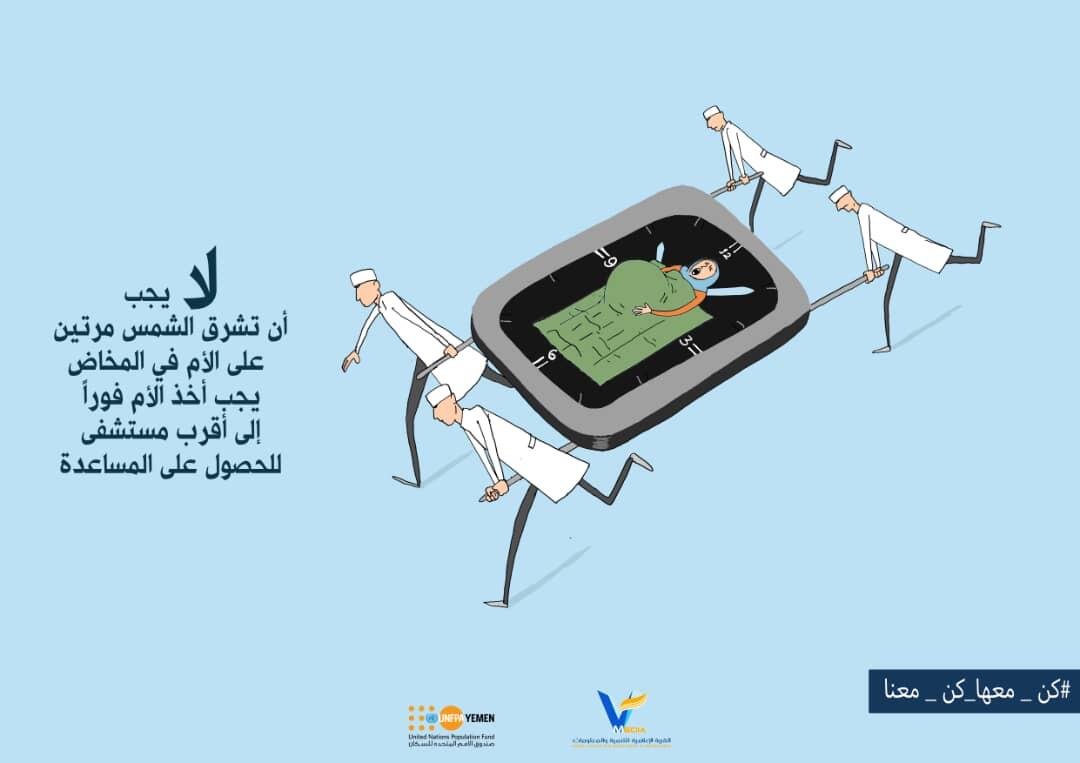Obstetric fistula is one of the most serious and tragic childbirth injuries. A hole between the birth canal and bladder and/or rectum, it is caused by prolonged, obstructed labour without access to timely, high-quality medical treatment. It leaves women leaking urine, faeces or both, and often leads to chronic medical problems, depression, social isolation and deepening poverty.
It is estimated that more than 2 million young women worldwide live with untreated obstetric fistula. Each year between 50 000 to 100 000 women are affected by obstetric fistula. Yet fistula is almost entirely preventable.
In Yemen, with the collapse of the health system, lack of skilled birth attendants, rising levels of malnutrition, particularly among pregnant women, and alarming rates of child marriage, as result of the conflict, cases of fistula are rising.
UNFPA has supported the establishment of three fistual units in Aden and Sana'a. In 2018, more than 80 fistula surgeries were sucessfully treated free of charge. In 2019, some 20, sucessful surgeries have been completed thus far. UNFPA is also helping to build skills of health personnel in treating obstetric fistual with advanced traingins. In addition, UNFPA has created and strengthened a network between community volunteers, community midwives, reproductive health and fistula experts from almost all governorates to help women suffering from fistula get the services they need, including providing free transportation from rural areas.


